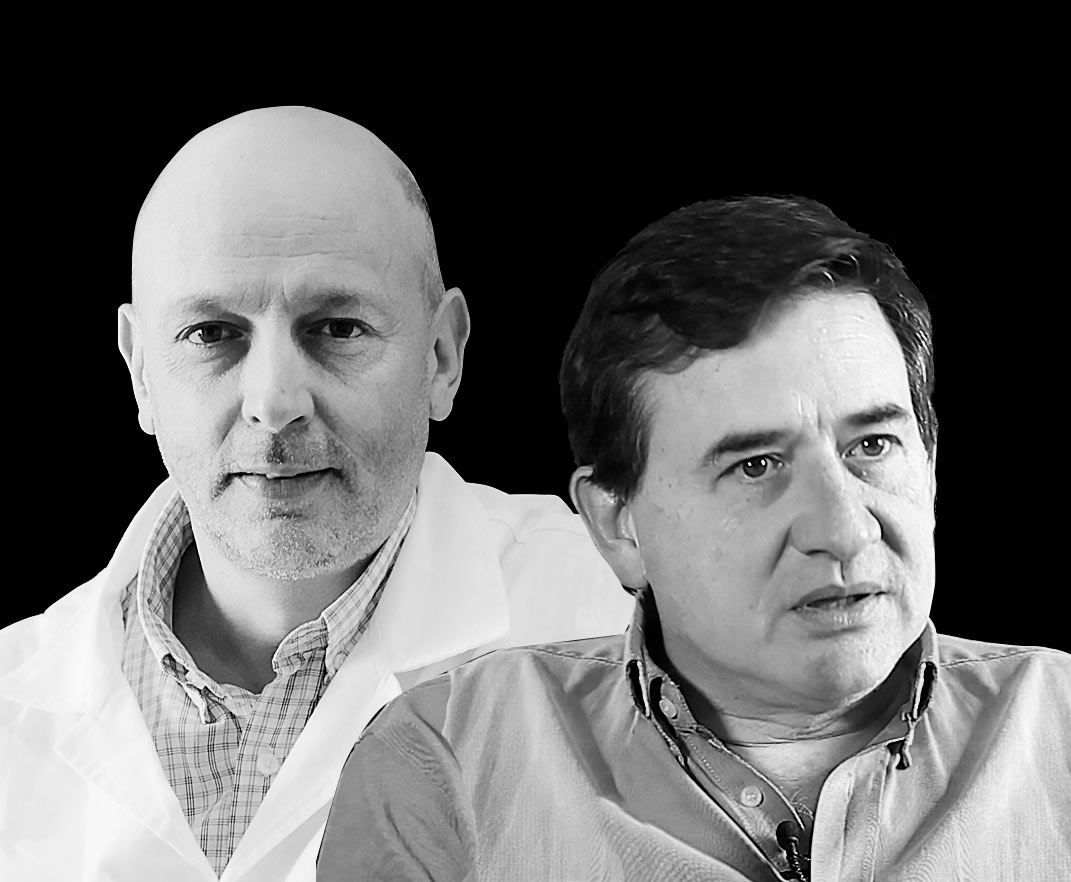No more maté sharing
Uruguay has been a rare bright spot in coronavirus-ravaged South America, thanks to a highly developed research infrastructure, a tradition of at-home medical care, and a strong public health system. Two key advisors to the government's pandemic response team explain how they scaled up their tests so fast and why they are now encouraging people to go outside more.
The first cases in Uruguay were confirmed on March 13, and the national working group that we convened of about 60 people met with the president on April 16. There were two main arms, one in health and one in data science and modeling.
38
Covid deaths as of August 19, 2020. Source: WHO Dashboard
The number of cases never really built up to the point where we had no control. You could almost track our epidemic through five or six distinct outbreaks that we've had, all with around 50 to 60 cases, and they're all basically isolated. The most recent outbreak was in a province called Treinta y Tres that is close to the Brazilian border, and this was the second outbreak we had of Brazilian origin. That border is technically closed, but there are some border towns which are binational, so it's hard to enforce. Actually, the main street in one of these towns is the border. So people will just cross freely. You cannot really be as locked down as we would like in those border towns.
 LEO BARIZZONI (RADI) ; COURTESY IMAGE (PAGANINI)
LEO BARIZZONI (RADI) ; COURTESY IMAGE (PAGANINI)Right now there's a reasonably good capability of PCR testing. [Editor's note: polymerase chain reaction, or PCR, is the standard method of identifying a virus from its genetic material.] We have built up enough capacity that if there's any outbreak, we can do contact tracing not just of the immediate contacts, but even second-order contacts. We've been doing that, plus some random testing of people around outbreak hot spots. As for the people who actually do the field testing, we have been relying on the existing capacity of the health ministry in terms of infectious diseases. We are used to dealing with other kinds of epidemics, like dengue, and so far we haven't had a high enough number of cases to involve people outside their expertise. But it's not really high tech. These guys are doing the job as it has long been done: lots of phone calls.
There was an early scientific response even before the disease arrived in the country in terms of interacting with research networks around the world and sharing reagents with different universities and centers abroad, such as the University of Hong Kong and the Pasteur Institute in France, to generate molecular biology tests here. Our first tests emerged from an agreement between the University of the Republic, a local affiliate of the Pasteur Institute, and our central government.
One specific thing we have here that is perhaps not so common around the world is that we have a lot of home-based medicine. We can tell people to stay at home and the doctor will come to you- not a paramedic, an actual doctor. So nobody really went to the hospital at the start of the pandemic, and there was no dissemination [of the virus] there. The testing teams went directly to people's homes with all the equipment on them, and they did the sampling there. That was a key factor, I think, in keeping the initial outbreak under control.
I think the initial scare played a role in getting people to follow social distancing guidelines because we were getting news mainly from Italy and Spain, and most of our population has Italian or Spanish origins. We were getting these pictures from Italy and Spain that were really scary, and when the government came out in a press conference and said You need to stay at home and need to social-distance," people were very willing to comply, even if our lockdown wasn't mandatory.
Today, although Uruguay has one of the older populations in South America, we think it's necessary for the elderly to have affection and to have talks in patios or gardens, in the open air. There is very little infection that happens in open spaces. So we are now promoting social networks that interact in open spaces, maintaining social distance, and with a relatively short period of time, but trying to avoid isolation because that was creating a large physical and mental stress in the elderly.
One more thing: we have this popular traditional drink here called mate [a caffeine-rich herbal tea], which you typically pass from one person to another. This social tradition, which has been with us for hundreds of years, has been cut dramatically. We are not sharing mate anymore. We do single-serve mate now.
This interview has been condensed and edited for clarity.